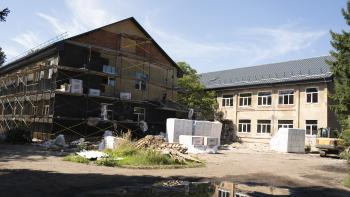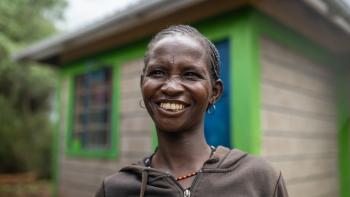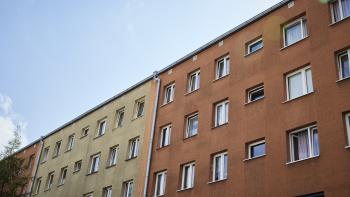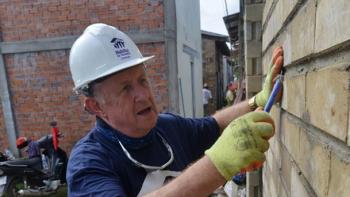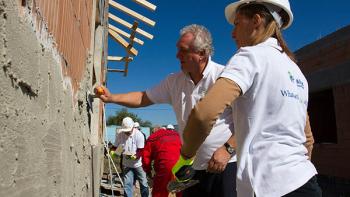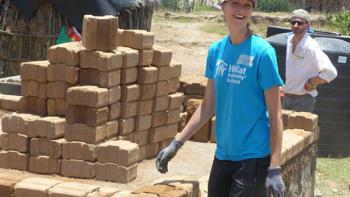Country Facts:
- Capital city – Cairo
- Population – 104+ million
- Life expectancy – 73.4 years
- Unemployment rate – 7.2%
- Below poverty line – 28.5%
Habitat Facts
- Habitat started in Egypt in 1989
- Individuals served in FY 2022 – 17,595
- Through incremental building – 8,550
- Through market development – 9,045
- Volunteers hosted in FY 2019 – 449
The housing need in Egypt
Egypt is home to one of the world’s fastest-growing populations. With more than 60% of its population below the age of 30, its current housing shortage is expected to rise, especially for low-income groups. While the need continues to grow in rural and urban areas in the country, factors such as climate change, scarcity of resources and water shortage as well as private investor apathy, influence the supply and affordability of housing units.
Low-income vulnerable communities in upper Egypt, for example, resort to unsafe, substandard housing options due to a lack of financing support for safe and adequate housing.
To address the issue, the Ministry of Housing, Utilities and Urban Communities in Egypt has developed a housing strategy that aims to fill this gap by providing subsidies or housing units to low-income groups.
How Habitat addresses the need
Improving housing through partnership
Habitat for Humanity Egypt works with five local partners who identify the most vulnerable families and provide small loans to support home repairs. We build the capacity of community-based organizations and local committee volunteers through training in microfinance portfolio management and development of case studies and ongoing support to the local community.
Water, sanitation and hygiene
We contribute to sustainable communities through water, sanitation and hygiene, or WASH, projects that target more than 300 families in rural communities. We train health workers to address WASH issues and engage household members and local committee members to improve hygiene standards. During the COVID-19 pandemic, relevant awareness-raising campaigns contributed significantly to the overall health conditions in target communities.
Housing support services
Habitat Egypt provides technical support such as advice on decent housing standards that contribute to health, safety and security. Our team of specialized engineers oversees projects and supervises labor and implementation works, upholding international quality standards and Habitat’s building codes.
Volunteer engagement
We facilitate volunteering opportunities by organizing build camps for youth where they can experience construction and understand their role in building better communities.
Climate adaptation
By putting the spotlight on informal settlements in an inclusive manner, our project aims to influence policymakers to integrate climate-resilient solutions and provide basic services. We focus on efficient, innovative financing support for adequate housing to contribute to policy directives in upgrading informal settlements. To address urban heat island effects in informal settlements, we help households adapt against adverse climatic conditions through a set of small-scale interventions. Our aim is to empower the residents of selected informal settlements by establishing a local community of practice that raises awareness of climate resilience and builds on existing local adaptation practices.
What you can do
DONATE
Please visit habitat.org/donate and designate your gift to Habitat Egypt.
VOLUNTEER
The Global Village program is resuming region by region until a safe and quality experience can be provided at scale worldwide. Please visit habitat.org/gv for more information.
TITHE
Habitat affiliates in the U.S. support the international work through an annual tithe. For additional information, email [email protected] or contact your local Habitat organization.
CONTACT:
Habitat for Humanity Egypt
Ashraf Eid
National Director
[email protected]
Mary Nabil
RDC Coordinator
[email protected]
To find out more about us visit our:
Website: www.habitategypt.org
Facebook: www.facebook.com/HabitatEgypt
